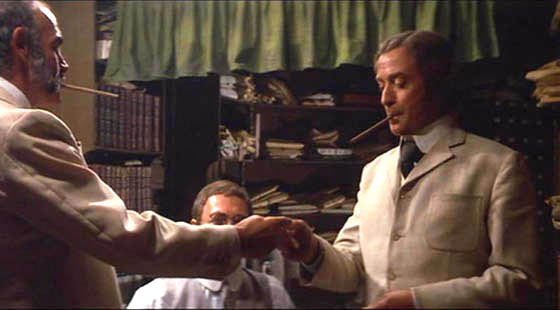Bush Wars
See other Bush Wars Articles
Title: Iraqi Defector ‘Curveball’ Admits To WMD Lies That Led To War
Source:
RawStory
URL Source: http://www.rawstory.com/rs/2011/02/ ... s-to-wmd-lies-that-led-to-war/
Published: Feb 15, 2011
Author: David Edwards
Post Date: 2011-02-15 11:22:14 by Brian S
Keywords: None
Views: 2311
Comments: 2
An Iraqi defector, codenamed Curveball, who allegedly helped convince the Bush administration that Saddam Hussein had a secret stash of biological and chemical weapons, has admitted for the first time that he made it all up. Rafid Ahmed Alwan al-Janabi told The Guardian that he invented the stories to help topple Saddam Hussein, but was shocked when the US used tales as an excuse to go to war. "I did that for a number of reasons," he said. "Firstly because of my people, the Iraqi people. The old regime was a dictatorship and that caused a lot of problems for our country." "I had to do something for my country. So I did this and I am satisfied, because there is no dictator in Iraq any more." "Maybe I was right, maybe I was not right," Janabi observed. "They gave me this chance. I had the chance to fabricate something to topple the regime. I and my sons are proud of that and we are proud that we were the reason to give Iraq the margin of democracy." It was just over eight years ago that US Secretary of State Colin Powell took Janabi's claims to the United Nations. The news also follows the release of former US Defense Secretary Donald Rumsfeld's admission that there were no weapons of mass destruction (WMD) in Iraq before the war. Tyler Drumheller, the former CIA chief in Europe, told The Guardian that Janabi's confession was "fascinating." "I think there are still a number of people who still thought there was something in that. Even now," he said. Janabi's lies were key features of arguments made by the Bush administration, namely that Hussein was moving biochemical weapons from place to place with mobile labs. He falsely claimed that he worked on a team that assembled the weapons, and that Iraq had plans to build even more mobile weapons labs. On Feb. 5, 2003, Powell repeated the claims in a speech to the United Nations, in which he justified the invasion of Iraq. Powell later described his speech to the United Nations as a "blot" on his career. "I'm the one who presented it on behalf of the United States to the world, and [it] will always be a part of my record," he said. "It was painful. It's painful now."
Post Comment Private Reply Ignore Thread
Top • Page Up • Full Thread • Page Down • Bottom/Latest
#1. To: Brian S (#0)
"I had to do something for my country. So I did this and I am satisfied, because there is no dictator in Iraq any more." "Maybe I was right, maybe I was not right," Janabi observed. "They gave me this chance. I had the chance to fabricate something to topple the regime. I and my sons are proud of that and we are proud that we were the reason to give Iraq the margin of democracy." So, all in all, the people of Iraq, as represented by this citizen, approves of the US invasion and the results. I thought so.
“It’s a place of warring tribes, which is to say — a land of opportunity for such as we who know how to train men and lead them into battle.” So we’ll fight for him and loot the country four ways from Sunday!” Parrot: You got to admit the Illuminati are smooth,.....they do it right infront of you,....heck,....they even tell you ahead of time, Stupid Commies don't get it Stupid Christians in their lands,........don't get it.
"I did that for a number of reasons," he said. "Firstly because of my people, the Iraqi people. The old regime was a dictatorship and that caused a lot of problems for our country."
#2. To: Brian S (#0)
An Iraqi defector, codenamed Curveball, who allegedly helped convince the Bush administration that Saddam Hussein had a secret stash of biological and chemical weapons, has admitted for the first time that he made it all up.

They will exploit you .......and loot you four ways from Sunday.
Stupid Moo si lums don't get it
Top • Page Up • Full Thread • Page Down • Bottom/Latest
[Home] [Headlines] [Latest Articles] [Latest Comments] [Post] [Mail] [Sign-in] [Setup] [Help] [Register]
